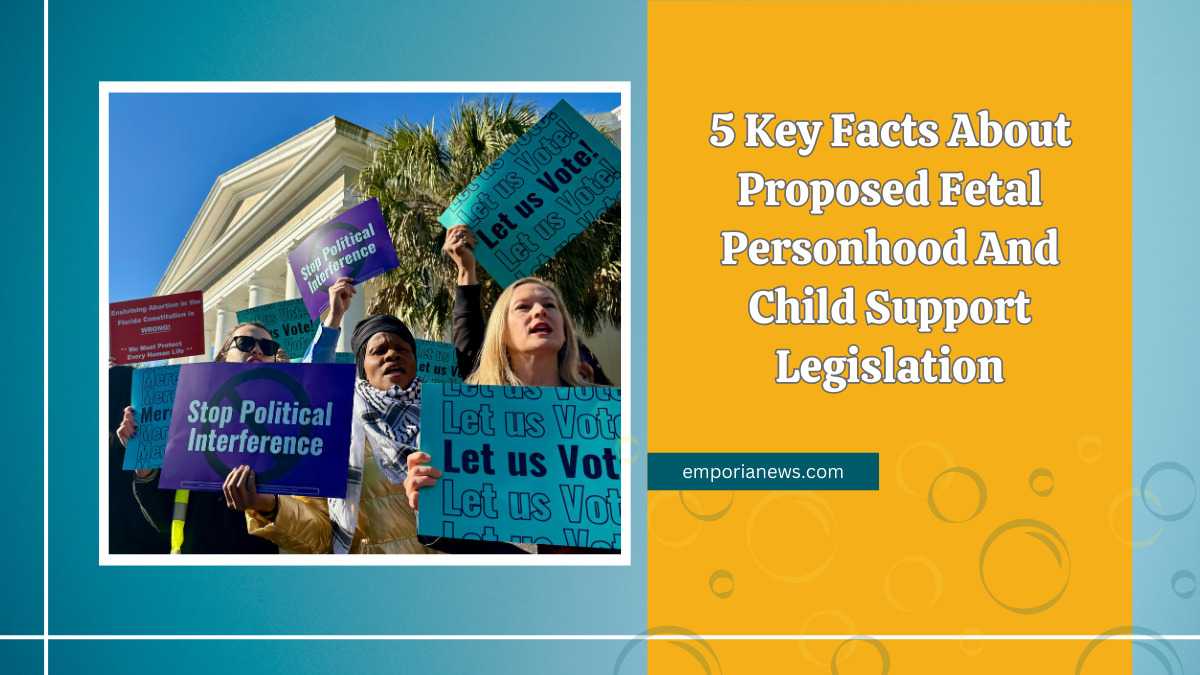Kansas is considering a significant legislative change that would establish fetal personhood and mandate child support from the moment of conception. This proposal has sparked extensive debate among lawmakers, legal experts, and the public.
Understanding the Proposed Legislation
The proposed bill aims to legally recognize fetuses as persons from the point of conception. This recognition would require biological fathers to provide child support for pregnancy-related expenses incurred by the mother.
Implications for Child Support
If enacted, the legislation would obligate fathers to cover costs associated with pregnancy, including medical care and other related expenses, from conception until birth. This marks a departure from current laws, which typically mandate child support only after a child’s birth.
Legal and Ethical Considerations
The bill raises complex legal and ethical questions. Critics argue that granting personhood to fetuses could conflict with established reproductive rights and potentially lead to further restrictions on abortion access.
Supporters, however, contend that it ensures fathers contribute to prenatal care, promoting shared responsibility.
Potential Impact on Reproductive Rights
By defining a fetus as a person from conception, the legislation could have far-reaching effects on reproductive rights in Kansas.
Legal experts warn that such a definition might pave the way for additional laws limiting abortion and affecting women’s autonomy over their reproductive health decisions.
Public Response and Legislative Outlook
The proposal has elicited strong reactions from both proponents and opponents. As the bill progresses through the legislative process, it is expected to face rigorous debate and potential legal challenges, reflecting the deeply divided public opinion on the issue.
| Aspect | Current Law | Proposed Change | Potential Benefits | Concerns |
|---|---|---|---|---|
| Legal Status of Fetuses | Not recognized as persons | Recognized as persons from conception | Ensures paternal support during pregnancy | May infringe on reproductive rights |
| Child Support Obligation | Begins after birth | Begins at conception | Provides financial assistance for prenatal care | Legal complexities in enforcement |
| Impact on Abortion Rights | No direct impact | Could lead to further restrictions | Promotes fetal protection | Potential erosion of women’s rights |
| Public Opinion | Divided | Highly polarized | Encourages shared responsibility | Deepens societal divisions |
In conclusion, Kansas’ proposed legislation to establish fetal personhood and mandate child support from conception represents a significant shift in the state’s approach to reproductive rights and parental responsibilities. As the debate continues, it is crucial to consider the legal, ethical, and social implications of such a change.
FAQs
What is the main objective of the proposed Kansas bill?
The bill aims to recognize fetuses as persons from conception and require biological fathers to provide child support for pregnancy-related expenses.
How would this legislation change current child support laws?
Currently, child support obligations begin after a child’s birth. The proposed legislation would initiate these obligations from the moment of conception.
What are the primary concerns associated with this bill?
Critics are concerned that granting personhood to fetuses could infringe on reproductive rights and lead to further restrictions on abortion access.
How might this legislation affect reproductive rights in Kansas?
By defining a fetus as a person from conception, the bill could pave the way for additional laws limiting abortion and affecting women’s autonomy over reproductive health decisions.




